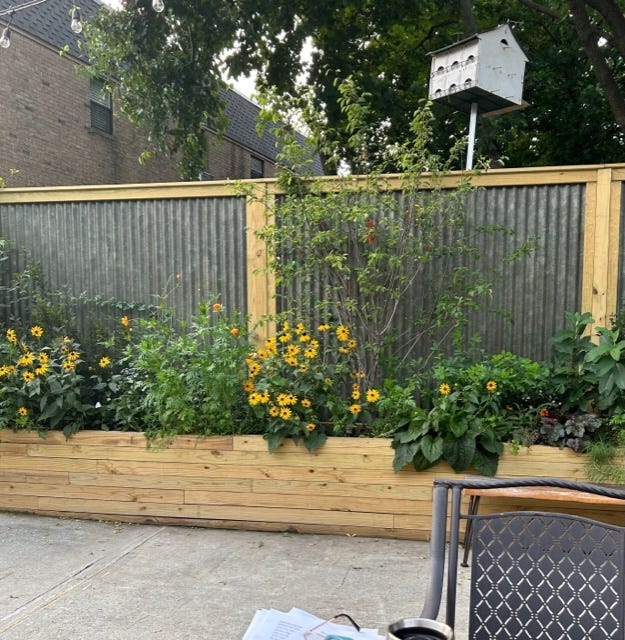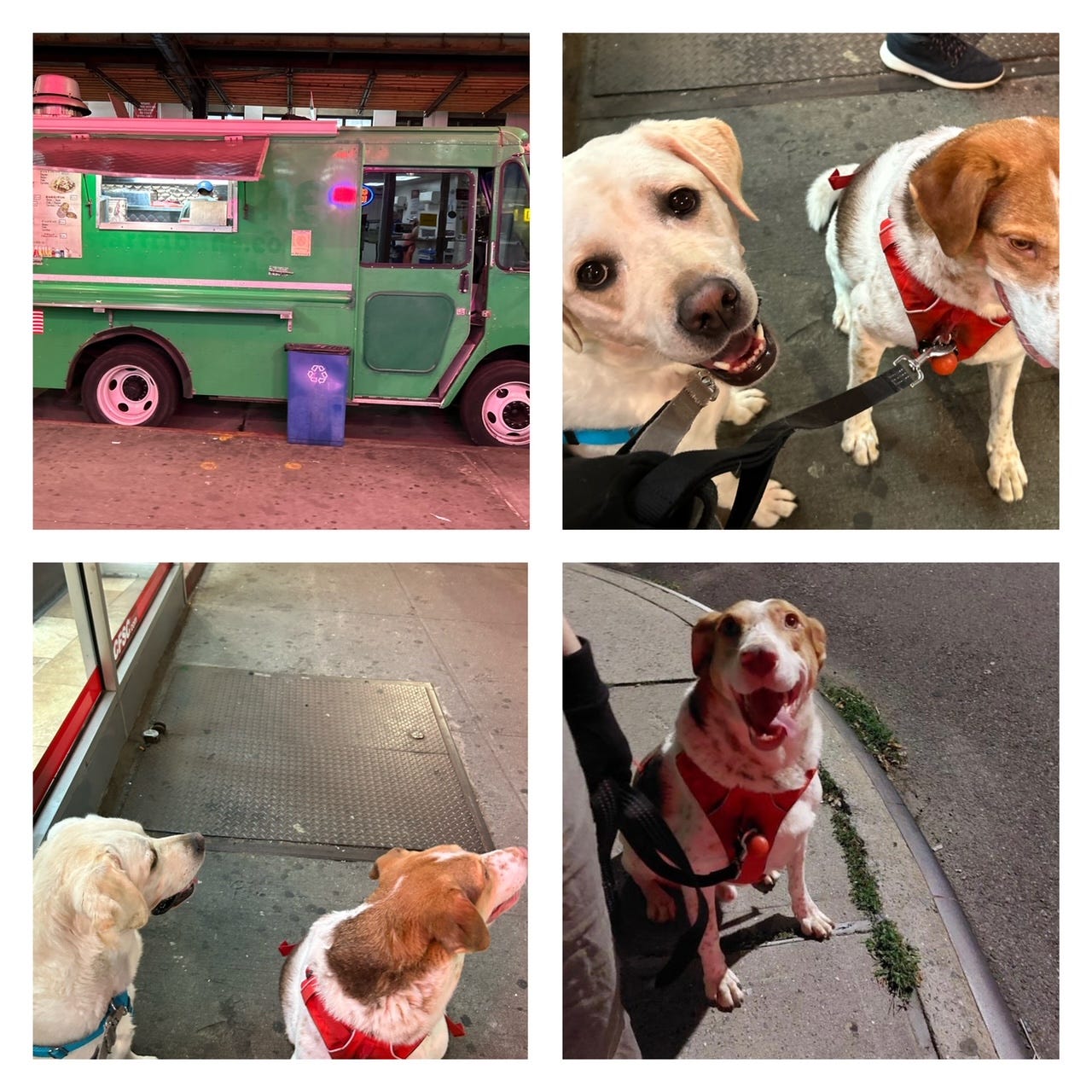So many ancestor links
Hi friends,
I’ve got an abundance of reading recommendations and links to share—they’ve been piling up around here for two months (busy summer)! But first, a few upcoming offerings:
On September 30, I'll be teaching Family History With Imagination, this time for the Miami Book Fair online. On Zoom, 1 - 4 PM ET. See the Miami Book Fair site for details. Sold Out.
On October 28, I'll offer Ancestors, Inspiration, and the Thinning Veil: A Ritual, in anticipation of the autumn solstice. On Zoom, 1:30 - 3:30 PM ET. Sold Out.
In Editorial Offerings news: I adored working with writers on their family history projects-in-progress this summer, and I've added a few new Ancestor Project Deep Dive editorial openings. If you have any questions about working with me in this way, please reach out. Sold Out.
And if you’re hoping to catch me in person, I’ve got some events coming up:
October 14, 2023: Brattleboro Lit Fest, with Liz Scheier (Never Simple). In person. Brattleboro, Vermont, 9:30 AM ET.
October 21, 2023: The Lost Weekend Festival, with Baynard Woods (Inheritance). In person. Baltimore, Maryland, 1:45 PM ET.
January 18, 2024: Launch for
’s first novel(!), Where You End, aptly described as “Donna Tartt meets David Lynch.” In person. The Mysterious Bookshop, NYC, details to come.
Finally, recommendations, links, and a couple things from me:
“What surprised me was how intimate the experience turned out to be for so many. They didn’t just get a check in the mail; they got some of their dignity and agency back. Also striking was how interviewee after interviewee portrayed the monetary payments as only one part—though an important one—of a broader effort at healing.” Morgan Ome never got a chance to ask her grandfather what reparations for internment meant to him, but spoke with other Japanese Americans for this gorgeous, inspiring, and important piece for The Atlantic: “What Reparations Actually Bought.”
“All of a sudden, this memory from childhood came back — very, very vibrantly — of this photograph of my grandfather standing in front of a nuclear test blast.” —Emily Strasser talks with Bitter Southerner about the violence and environmental devastation she discovered that her grandfather's work unleashed, and how reckoning with corrosive family secrets begins with acknowledging them and the harm they wreak far beyond individual families.
Related: earlier this month, I was live on Connecticut Public Radio's The Colin McEnroe Show to talk ancestors and Ancestor Trouble. The hour begins as Jenny Strauss contemplates the legacy of her great-grandfather Lewis Strauss, currently depicted in "Oppenheimer" by Robert Downey Jr. She refers to him as the film's antihero, which was my takeaway of the director's intentions, too. And Colin shares some recent family history discoveries of his own.
"Aridity is baked into the people and places of the American Southwest.... but we hardly have a vocabulary for the extreme version of heat and drought we are now living through." Stunning & gutting essay for the New York Times, by Terry Tempest Williams. (Paywall override.)
“How does ground zero become hallowed ground?” Rev DeMett Jenkins, director of education and engagement for faith-based communities at the International African American Museum (IAAM) in Charleston, South Carolina, emphasizes “the importance of spiritual healing and community networking in the museum’s development [alongside] the social justice component of this sacred space.”
I’m reading In the Pines: A Lynching, a Lie, a Reckoning, by Grace Elizabeth Hale, which is out this fall. I recommend it so highly so far and I’m sure I’ll have more to say about it in the coming months. The brilliant Ilyon Woo calls the book “A profound act of narrative repair, in which a sheriff’s granddaughter, now a renowned historian, rolls up her sleeves to rip the dressing off one of the nation’s deepest wounds—one in which her own beloved grandfather was complicit. Fierce and unflinching, with moments of startling beauty as well as horror.”
“A study suggests that a mother’s stress may leave a lasting scar on future generations by impacting the makeup of her child’s gut microbiome.”
"Like [Alzheimer's] risk genes, your family history influences—but does not fully determine—your chance of getting dementia."
“On average, African Americans born between 1960 and 1965 have about 300 African and 50 European ancestors dating back to 1619…. Genetic ancestry studies usually focus on clustering the genomes of living people [but here] ancestry is modeled with an explicit sense of genealogical descent over time.”
“Without knowing our disability lineages, all of our children’s disabilities will seem unprecedented, uninherited, singular.” A conversation with Jennifer Natalya Fink, author of All Our Families: Disability Lineage and the Future of Kinship.
“What could be worse than this? Did ravens pluck out his eyeballs?” Jimmy Kimmel tears up learning of his Italian ancestor's difficult life after immigrating to the States.
“Warning, Family History May Cause Writer's Block,” by Kristin Wong.
“A magical connection to the land”—an interview with Ashleigh Bryant Phillips, a young Southern talent whose story collection, Sleepovers, is great.
I wrote “My Accused Witch Ancestor Was Also an Enslaver”—a fact familiar to many readers of this newsletter—and posted it on Medium so that I can stop lobbying other people to update the record around my ancestor Mary Bliss Parsons’ history. It's in my book, but now it’s more Googlable. (My friend Ousmane Power-Greene, an accomplished novelist and scholar, and an organizer, is on the Northampton reparations committee, and we met up over the weekend to talk about the deep history of slavery in the area. I recommend following his work.)
I can’t believe I forgot to add this before I sent the newsletter.
has an Ancestors to Elements class coming up, and she’s got an early bird special for her newsletter subscribers (raises hand) that will be announced tomorrow.
I’ll leave you with these photos from a recent a visit to the local taco truck, a family ritual. (I wear gloves because the dogs like to wander into poison ivy, especially in the summer, and the result of touching harnesses and leashes with my bare hands afterward is sting-y, itchy, and ghastly to behold.)





Thank you Maud. And once again, you have gifted us with so many amazing ideas and resources! A treasure trove of ancestral wisdom!
Jennifer Natalya Fink will be a guest on my podcast later this month!